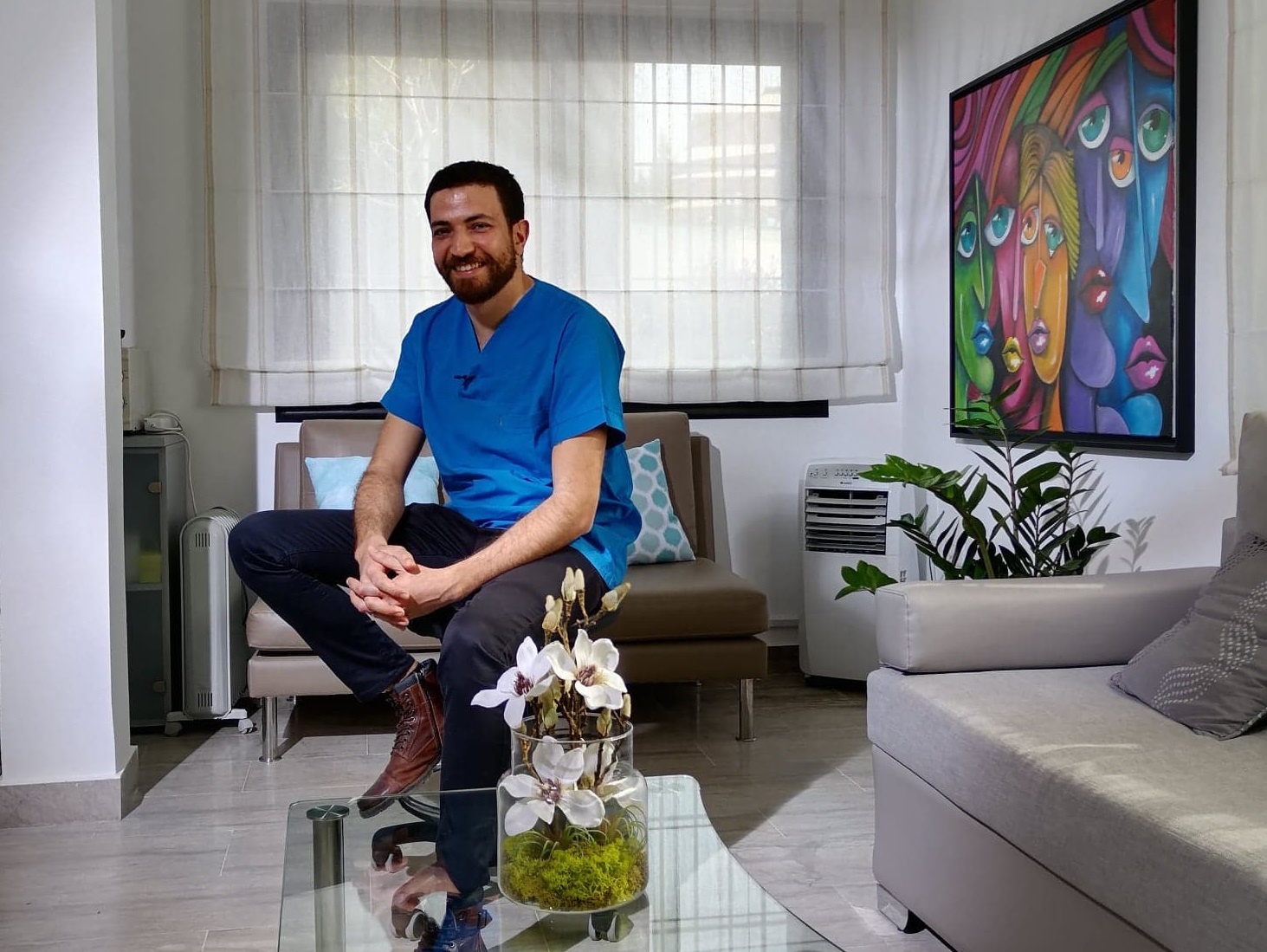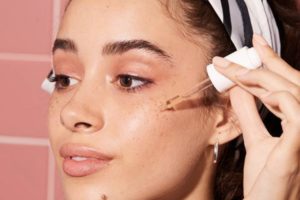
Not drinking water from sunrise to sunset might leave you thinking that fasting can’t be good for your skin. The assumption is, you’ll be left dehydrated, and so will your skin.
As it turns out, that’s not exactly true. Whilst fasting isn’t ideal for the health of your skin, Ramadan has increasingly beneficial effects—and may leave your skin in a better state than you first started off.
Lack of water aside, Ramadan is when Muslims around the world put their best feet forward, building new (and often, better) habits that ultimately lead to positive changes. But we’ll let the experts explain it all. Ahead of the holy month, we met up with Qatar and Tunisia based dermatologist Slim Halouani who practices at Majestic Dermatology in Doha to get the low-down.
Here’s everything you need to know about taking your skin to the next level this month:
What happens to your skin during Ramadan?
Obviously, what I see with my patients is that during Ramadan, skin gets better. Actually, people tend to eat less street food during the month. Breaking the fast, most eat home cooked food. They usually start with salads which is very rich in antioxidants and vitamins and drink a lot of water after breaking the fast. Also, for those who smoke or drink alcohol, Ramadan is the best month of the year as most of them get less toxic to their body. For those reasons, the skin seems to get more glowing and dark spots less obvious. Fasting improves also oily skins and acne issues.
However, for those who keep all the bad habits after breaking the fast, skin doesn’t respond that good to Ramadan.
Do we need to change beauty routines during the Holy Month?
Absolutely yes. During the day, skin moisturizers become a must for Ramadan. We need to preserve the water inside the skin. It’s now well known that skin hydration is due most to the natural moisturizing factor (NMF) which is mostly composed of fat (ceramides). This NMF prevents water from getting out of the deep skin layers. That’s why we should use rich creams as moisturizing crem during the day.
Also, we should protect our skin from sun exposure. Actually, apart from UV, sunlight contains infra-red rays (IR) which are responsible of the heat we feel once exposed to sun. This may exaggerate the water loss from the skin. Using sun block effective over IR and UV should be considered.
After breaking the fast, night routine is kept the same.
How much water shall we drink during iftar?
Drinking water is good for all our organs. Thirst is a neuronal message that blood transmits to our brain to claim water. Unfortunately for the skin, it is the last organ that takes water from blood and skin doesn’t send any message to our brain to claim water. For that reason, we could not be aware that our skin needs water as we do not feel thirsty for it. I think that we should drink to our thirst and 0.5L more to get what we really need.
What are the products you recommend for Ramadan?
Depending on the type of the skin I would recommend some ingredients to put on our skin routine. For those who have combination to oily skin I would advise to use products with light textures like serums with niacinamide (vitaminB3) and hyaluronic acid that will improve the hydro balance of the skin during the day. At night AHA and salicylic acid can help reducing acne problems.
For those with dry sensitive skin they should use rich creams textures including hyaluronic acid and ceramides. Retinol (vitamin A) can be used as an antiaging for both. However, sensitive skins may be intolerant to it and we can replace it by bachutiol, a retinoid-like. Of course, vitamin C can be used day and/or night if we need antioxidant effect. In addition, I would advise thiamidol at least twice a day for those who have brown spots issues like melasma. Last but not least, sun screens should be considered for every skin type.
Source: Mille World Magazine


